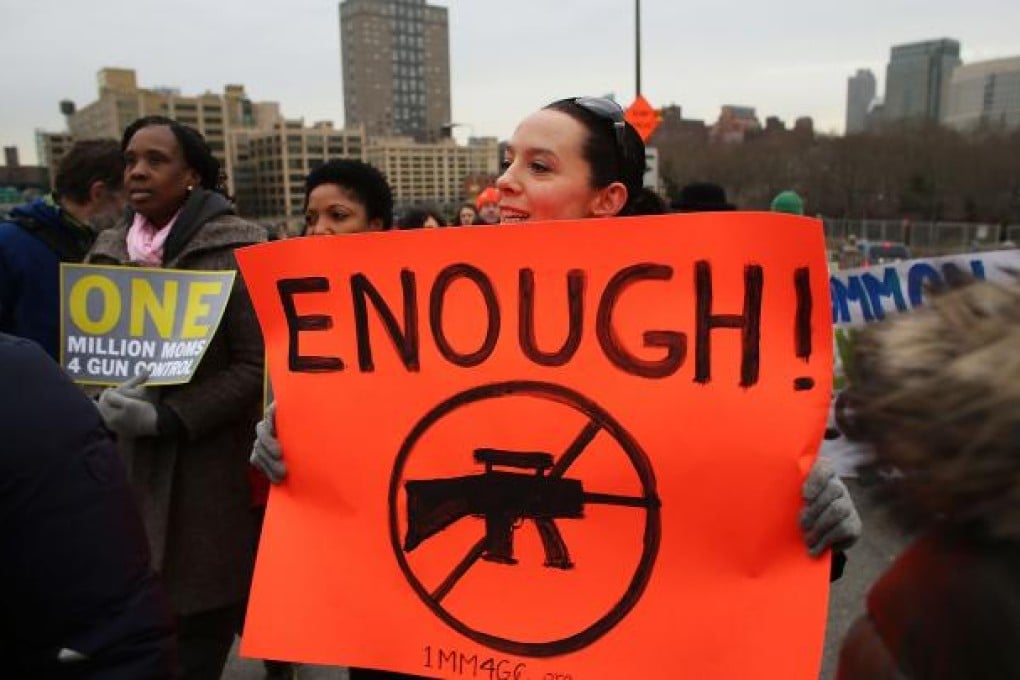
The world is watching while the US divides more bitterly than ever in a national debate it has had before, and must have again, on whether to accept more control of guns in the community. The horror of the shooting massacre last month of 20 small schoolchildren by a lone gunman remains fresh enough in the memory to compel attention.
President Barack Obama has seized on it to rally public pressure for a reluctant Congress to pass broad gun-control legislation, including a ban on possession of military-style assault weapons and high-capacity ammunition magazines, expanded personal background checks and tougher gun-trafficking laws.
That such measures could divide a civilised nation still in mourning for its children may not be easily understood in Hong Kong and other law-abiding places with more effective gun control, including Britain and Australia, where civilian mass shooting atrocities led to broad public support for tougher legislation. But Americans have a constitutional right to bear arms and Obama is taking on one of the country's most powerful interest groups, the National Rifle Association, and other forces that have successfully opposed new gun laws for decades.
He has, therefore, elevated gun control into one of the most divisive issues of his presidency, along with health-care reform, gay rights and immigration. The White House has foreshadowed a co-ordinated effort with interest groups to take the fight into strongholds of gun ownership and persuade their congressional representatives to back new laws.
At the same time, he can ill afford to further antagonise a partisan Congress ahead of what is certain to be a bruising fight over the need to raise the national debt ceiling so America can continue to pay its debts and avoid jolting global economic confidence. That is another reason for the rest of the world to take an interest in how the latest attempt at gun control plays out politically.
